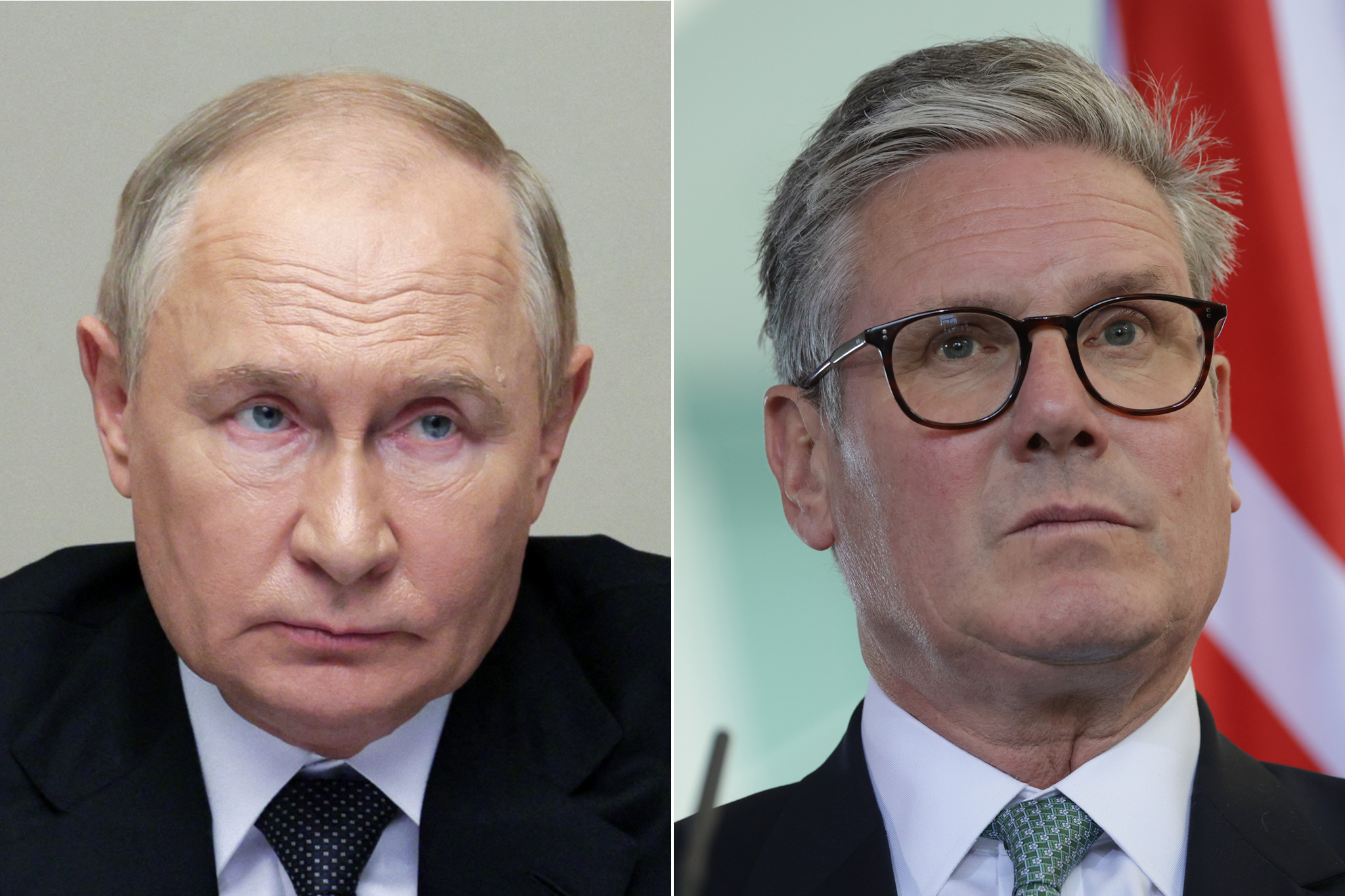Could Britain really go to war with Russia?
Ukraine is currently fighting for the rest us, writes Sean O’Grady. If the West doesn’t step in now, we, too, will face Russia in a fight for freedom


Well, could we? Given the magnitude of the question, it seems to be surprisingly little talked about. It is, at least in principle, real enough.
If Keir Starmer and Joe Biden agree to allow Ukraine to use the long-range missiles we’ve sent to help them defend their country – not just near (or within) Ukraine’s borders but on legitimate military targets such as arms dumps and air force bases deep in Russian territory – it does risk “escalation”.
There may be civilian casualties – such is the nature of war. Vladimir Putin has said as much; warning that Nato will be directly at war with Russia if it lets Kyiv use such weapons.
In a display of tit-for-tat, six British diplomats have been expelled from Moscow in response to the “numerous unfriendly steps” by London and after “signs of spying and sabotage” were found in the actions of the diplomats – accusations the Foreign Office has branded completely baseless.
Putin could retaliate further by attacking Nato allies, either via cyberwarfare, assassinations, destruction of undersea communications cables and pipelines – or through drone interference with air traffic.
More provocatively, he could exact a low-level strike on an Estonian Nato base; or deploy a small, tactical nuclear weapon in Ukraine to lend credibility to the nuclear deterrent and bring it into play. He might also bomb the great historic buildings and cultural monuments of Kyiv, which have so far been spared.
Then what should the West do? What would America do? How would Poland, Romania, France and Germany react? Would we remain united? Would the far right in Europe agitate to end the war and let Putin keep the territory he already occupies (the “peace plan” advocated by JD Vance in the US, and more or less explicitly supported by Donald Trump)?
Whatever view one takes of the war in Ukraine, these are the very questions that need to be addressed across the West. They are not being discussed enough – or at least not publicly, other than the occasional reference to the conflict in the American presidential election. We know that Western leaders are discussing such issues, and we can assume that the US and UK wouldn’t go ahead without the tacit support of fellow Nato allies. So… should we?
Yes, under certain clear conditions. The most important is that Ukraine president Volodymyr Zelensky and his generals use these weapons sparingly, with only the clearest of military justifications; such as taking out bomber bases that have been used to slaughter civilians – and with minimal (if not zero) civilian casualties.
The Russians should be warned that their actions now carry these consequences. The principle and precedent of this sort of extension of the war has already been set because Western weapons have been used already on Russian soil – for example, tanks in the Kursk incursion. Whether they shoot down a Russian bomber one mile into Russian territory or hundreds of miles away makes no difference.
Second, and based on that agreed protocol, all the Nato allies have to be (and stay) united; preferably with the backing of other strategic partners, such as South Korea, Japan and Australia. The risks have to be recognised and war-gamed. Parliaments and people need to be ready to fight and face the consequences.
Dissent should be minimal (Hungary may be the exception) in order to maintain the cohesion of the deterrent of the Western alliance. Putin needs to understand what he might be up against if he tried to escalate the war further – as Starmer says, he started it in the first place. In fact, it began 10 years ago when Putin annexed Crimea and helped the separatists in eastern Ukraine. The “special military operation” in 2016 was also his escalation, as were the war crimes that have followed.
It was consistent Western weakness that virtually invited Putin to take advantage of the situation – if Ukraine had joined Nato and the alliance had been prepared to defend it, none of this would have happened.
If the West is prepared to be united and to face down Putin’s threats, then he will not carry them out. He has not delivered on any of his previous bluffs – his words this time are vague enough to suggest he will not risk confrontation with Nato in a war he cannot win and which would mean the end of his rule.
Much more likely, he would scale down the bombing campaign to preserve his resources and try to hang on to as much of Ukraine as he can until the peace talks come round, as they surely will. Then it will be up to Zelensky and Putin to come to terms.
Realistically, it may prove impossible – even with Western assistance – for Ukraine to regain Crimea and parts of the east. But that’s a matter for them.
Sadly, even if we want Ukraine to win this war, it may not be possible. But as Kamala Harris had to remind a sceptical Trump in that debate, we cannot afford to let Putin win it and have him sitting in Kyiv wondering how (and when) to annex Poland, Romania and the rest of us.
It’s the old lesson of appeasement: if we don’t give the Ukrainians the freedom to defend themselves properly and fight our battles for us, then we will one day find American, British, Polish, German, French, Czech and other armies fighting – once again – for freedom in Europe.
The truth is plain enough and it is how we won the Cold War: we need to be ready for war with Russia to prevent war with Russia.






Join our commenting forum
Join thought-provoking conversations, follow other Independent readers and see their replies
173Comments